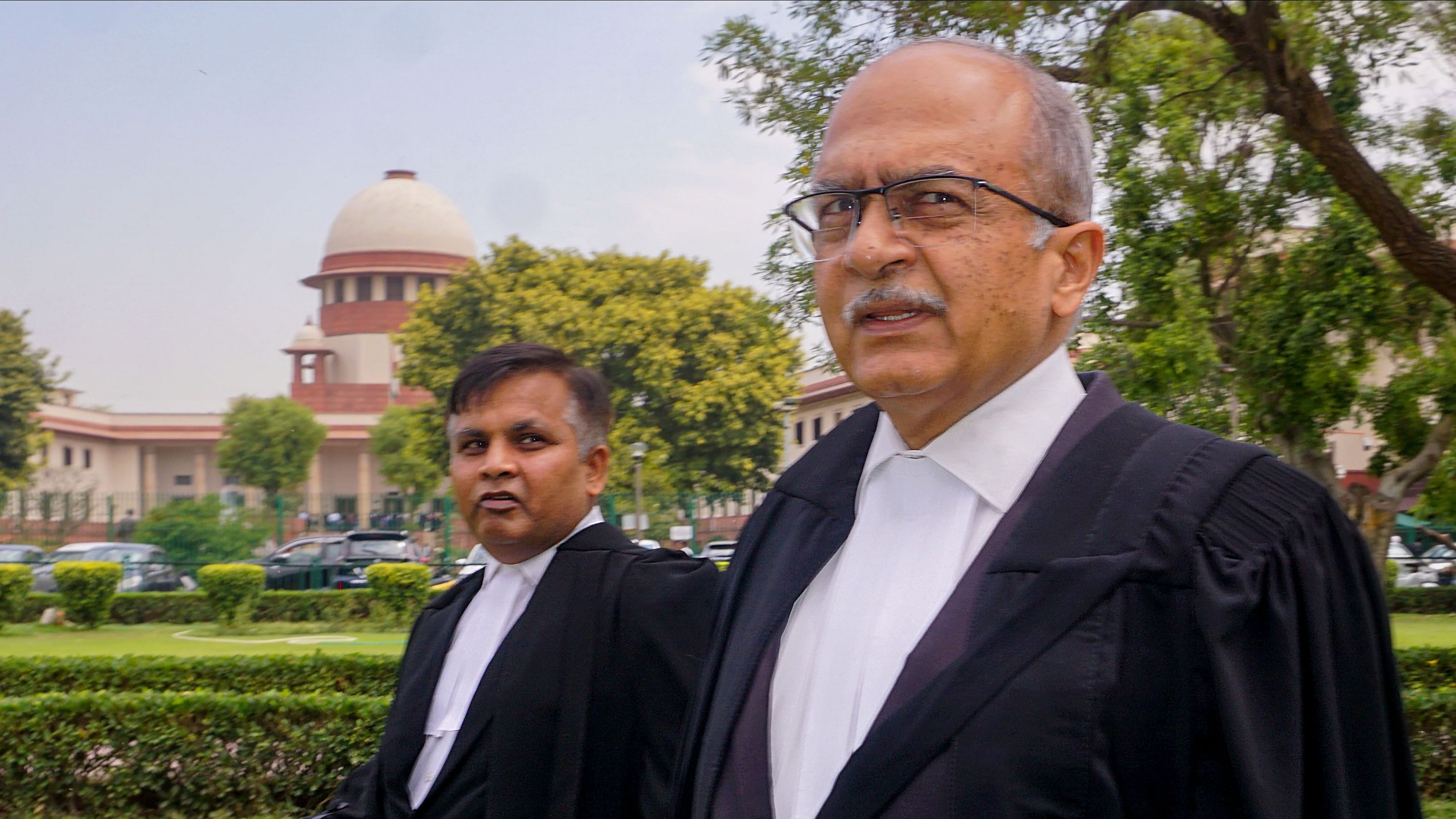
Senior lawyer Prashant Bhushan, who appeared for petitioner Association for Democratic Reforms in the case, speaks to the media after the SC rejected the pleas seeking 100% cross-verification of EVMs data with VVPAT records, in New Delhi, on Friday
Credit: PTI Photo
New Delhi: "In recent years, a trend has been fast developing of certain vested interest groups endeavouring to undermine the achievements and accomplishments of the nation," the Supreme Court noted on Friday in its judgment on a plea seeking 100 per cent verification of EVM counts with VVPAT or return of old ballot system.
Justice Dipankar Datta, who, along with Justice Sanjiv Khanna, declined to allow a plea for 100 per cent EVM-VVPAT counts in the elections, slammed the petitioners, including NGO Association for Democratic Reforms, for attempt to discredit the system of voting through the EVMs and thereby "derail the electoral process" that is underway by creating "unnecessary doubts" in the minds of the electorate.
The top court said blindly distrusting any aspect of the system can breed unwarranted scepticism and impede progress.
"There seems to be a concerted effort to discredit, diminish, and weaken the progress of this great nation on every possible frontier. Any such effort, or rather attempt, has to be nipped in the bud. No Constitutional court, far less this court, would allow such attempt to succeed as long as it (the court) has a say in the matter," Justice Datta said.
The judge said he had serious doubt as regards the bona fides of the petitioning association when it sought a reversion to the old order of the paper ballot system.
"Irrespective of the fact that in the past efforts of the petitioning association in bringing about electoral reforms have borne fruit, the suggestion put forth appeared inexplicable. Question of reverting to the “paper ballot system”, on facts and in the circumstances, does not and cannot arise. It is only improvements in the EVMs or even a better system that people would look forward to in the ensuing years," he wrote in his separate judgment.
Justice Datta said while rational scepticism of the status quo is desirable in a healthy democracy, this court cannot allow the entire process of the underway General Elections to be called into question and upended on mere apprehension and speculation of the petitioners.
The petitioners have neither been able to demonstrate how the use of EVMs in elections violates the principle of free and fair elections; nor have they been able to establish a fundamental right to 100% VVPAT slips tallying with the votes cast, he added.
"Be it the citizens, the judiciary, the elected representatives, or even the electoral machinery, democracy is all about striving to build harmony and trust between all its pillars through open dialogue, transparency in processes, and continuous improvement of the system by active participation in democratic practices," he said.
"Our approach should be guided by evidence and reason to allow space for meaningful improvements. By nurturing a culture of trust and collaboration, we can strengthen the foundations of our democracy and ensure that the voices and choices of all citizens are valued and respected. With each pillar fortified, our democracy stands robust and resilient," Justice Datta added.
